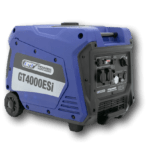How to Become an Electrician in New Zealand in 2024
Are you considering a career as an electrician in New Zealand? The electrical trade offers a rewarding path with a blend of practical skills and technical knowledge. Here’s a step-by-step guide to help you navigate the process of becoming a qualified electrician in New Zealand in 2024.
1. Complete Your Secondary Education
Before embarking on your journey to becoming an electrician, ensure you have completed your secondary education. Subjects like mathematics, physics, and technology can provide a strong foundation for your future studies.
2. Enrol in a Pre-Apprenticeship Course
While not mandatory, enrolling in a pre-apprenticeship course can give you a head start. These courses, available at polytechnics and training institutes, provide basic electrical skills and knowledge, making you a more attractive candidate for an apprenticeship.
3. Secure an Apprenticeship
An apprenticeship is a crucial step in becoming an electrician. You will need to find an employer who is willing to take you on as an apprentice. This on-the-job training, combined with off-the-job learning, will last around 3-4 years. Resources like the New Zealand Apprenticeships programme can help you find opportunities.
4. Register with the EWRB
You must register as an electrical apprentice with the Electrical Workers Registration Board (EWRB). This registration is essential for legally working and gaining the necessary practical experience.
5. Complete On-the-Job Training and Coursework
Throughout your apprenticeship, you will gain hands-on experience under the supervision of a licensed electrician. Additionally, you will need to complete a series of coursework modules that cover the theoretical aspects of electrical work.
6. Pass the Necessary Exams
At the end of your apprenticeship, you will need to pass several examinations to demonstrate your competency. These exams test both your practical skills and theoretical knowledge. The main exams include the Electrical Theory Examination, Regulations Examination, and Practical Assessment.
7. Apply for a Practising Licence
Once you have passed all the required exams, you can apply for a practising licence with the EWRB. This licence allows you to legally work as an electrician in New Zealand. Ensure you meet all the EWRB’s requirements and submit your application for review.
8. Continuing Professional Development
Even after becoming a licensed electrician, it’s essential to stay updated with industry standards and practices. The electrical field is constantly evolving, so participating in ongoing training and development will ensure you remain at the top of your game.
9. Consider Specialisations
As you gain experience, you might choose to specialise in areas such as residential, commercial, or industrial electrical work, or even in fields like renewable energy or automation systems. Specialising can open up further career opportunities and advancements.
10. Join Professional Associations
Becoming a member of professional associations like ECANZ (Electrical Contractors Association of New Zealand) can provide networking opportunities, access to the latest industry information, and additional resources to help you advance in your career.
Ready to Get Started?
Embarking on a career as an electrician in New Zealand is a journey that combines education, hands-on experience, and continuous learning. It’s a profession that not only offers job security and good earning potential but also the satisfaction of mastering a skilled trade. If you’re ready to start your journey, take the first step today by exploring apprenticeship opportunities and educational courses in your area.
For more information and guidance, feel free to contact Full Power Electrical. We’re here to support you every step of the way.
By following these steps, you’ll be well on your way to a successful career as an electrician in New Zealand. Good luck!




